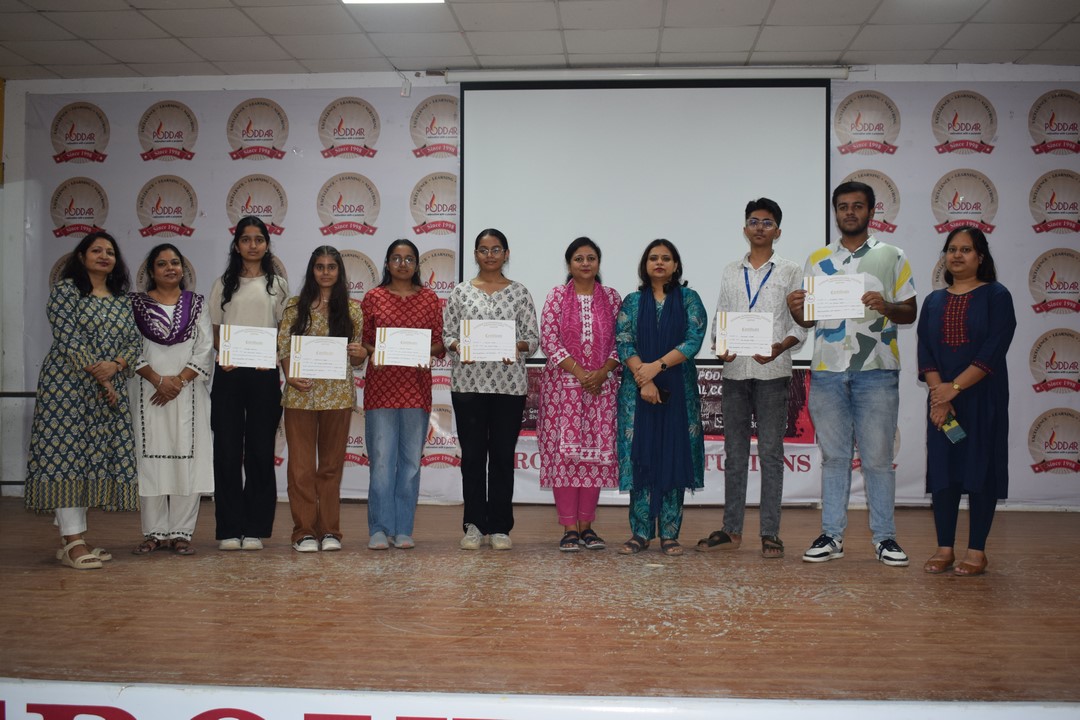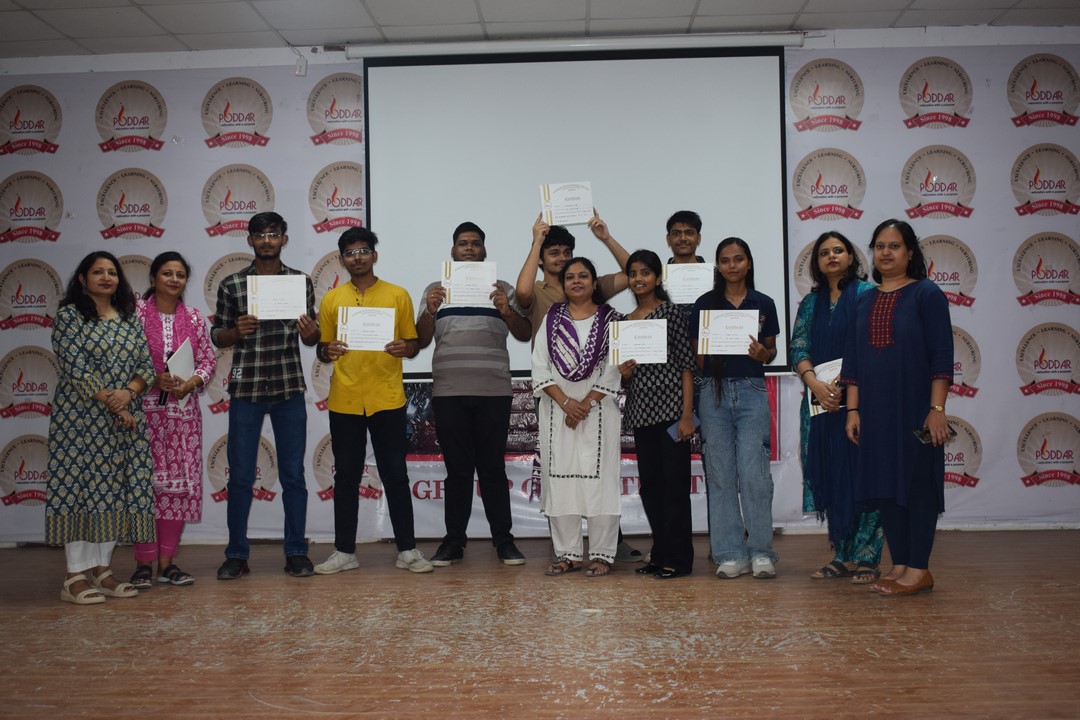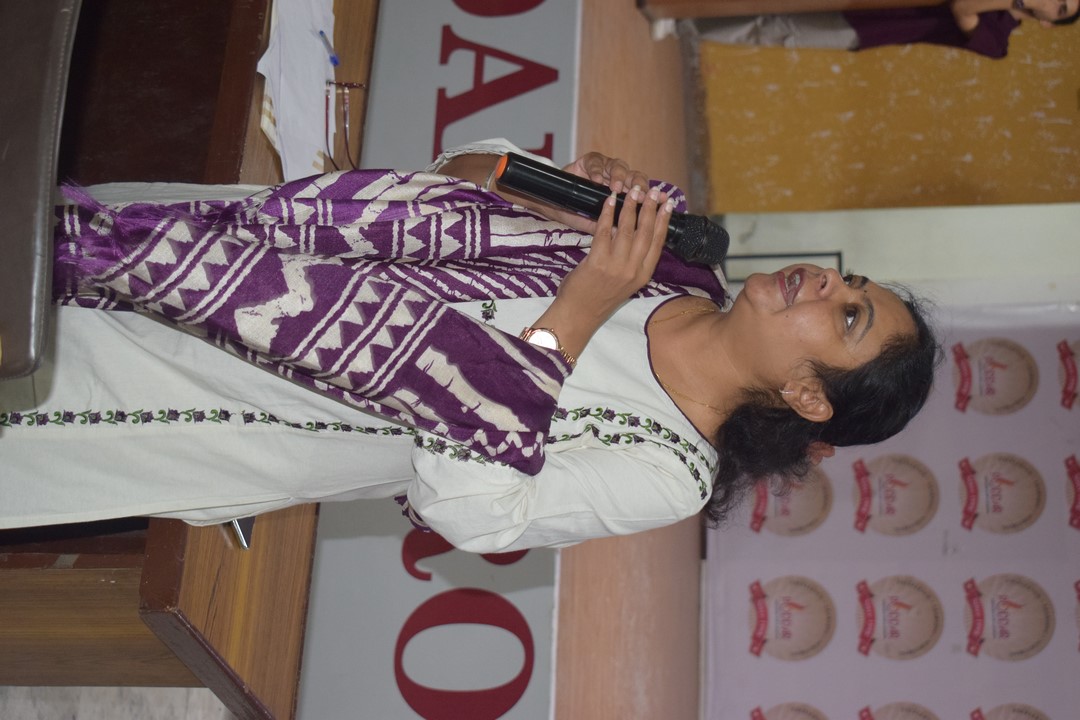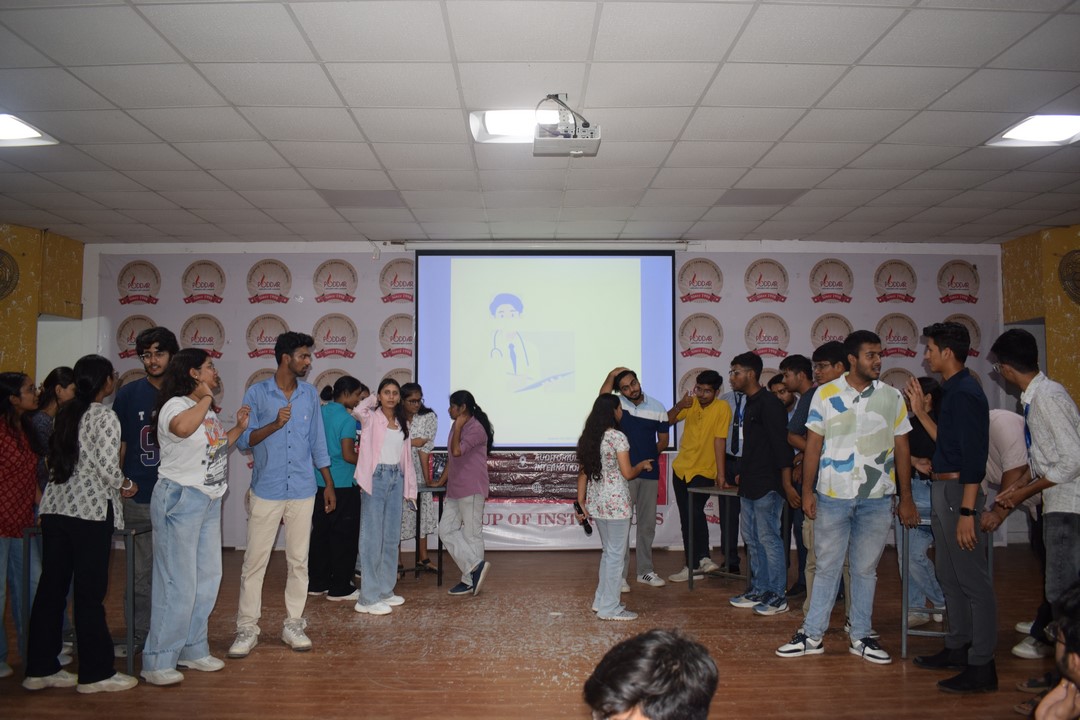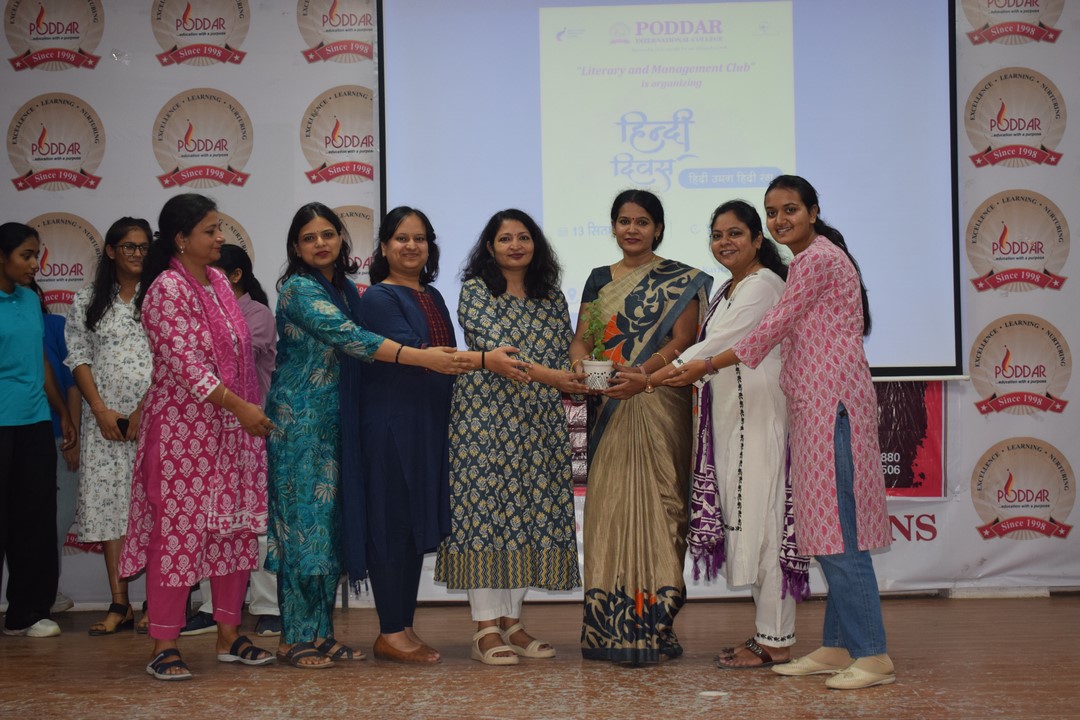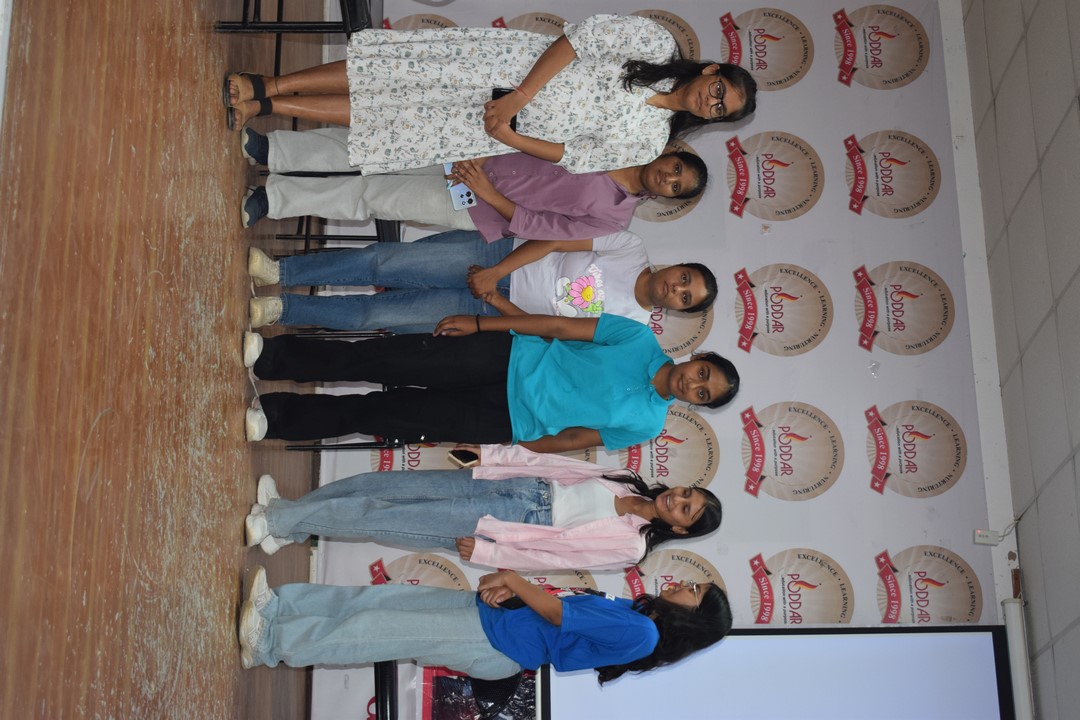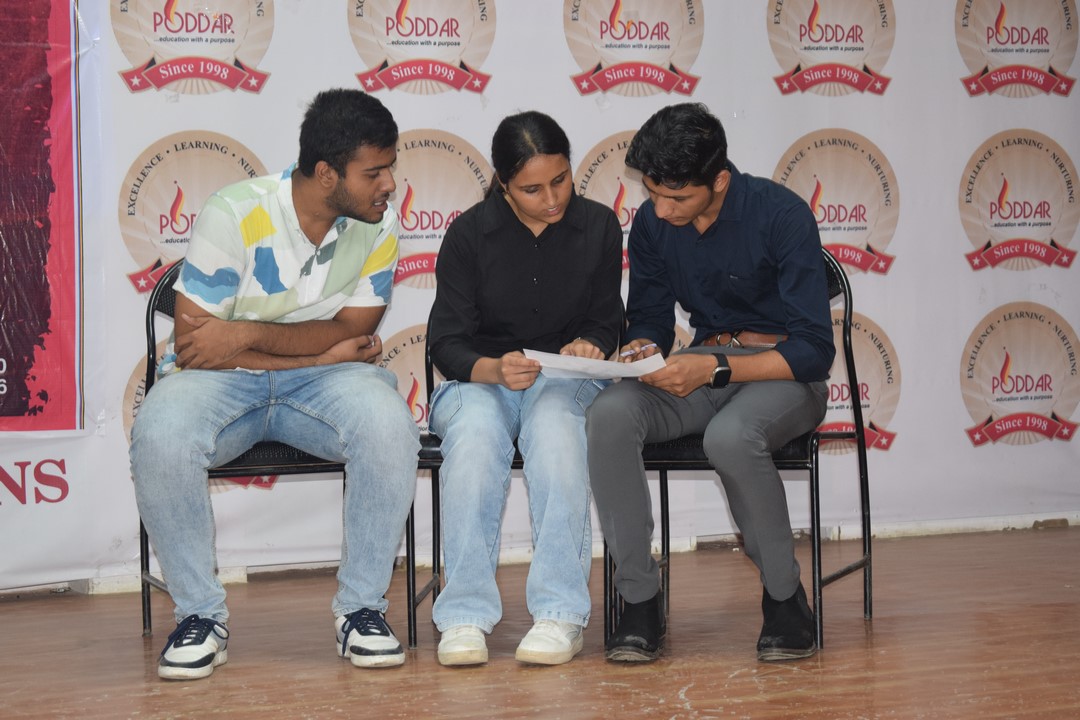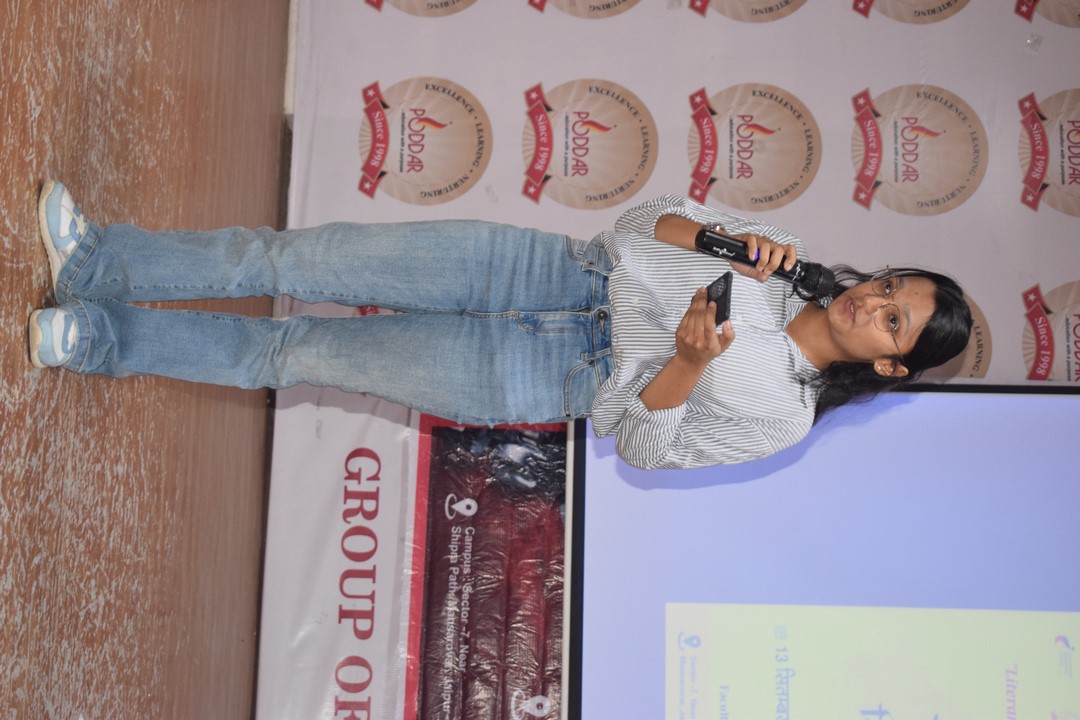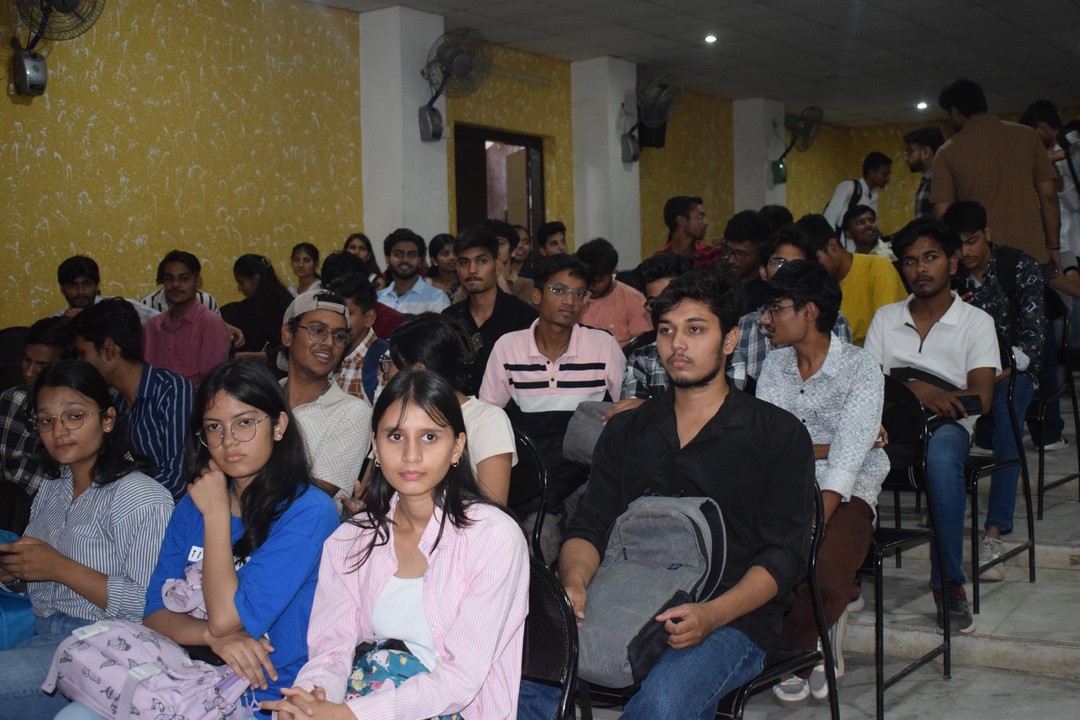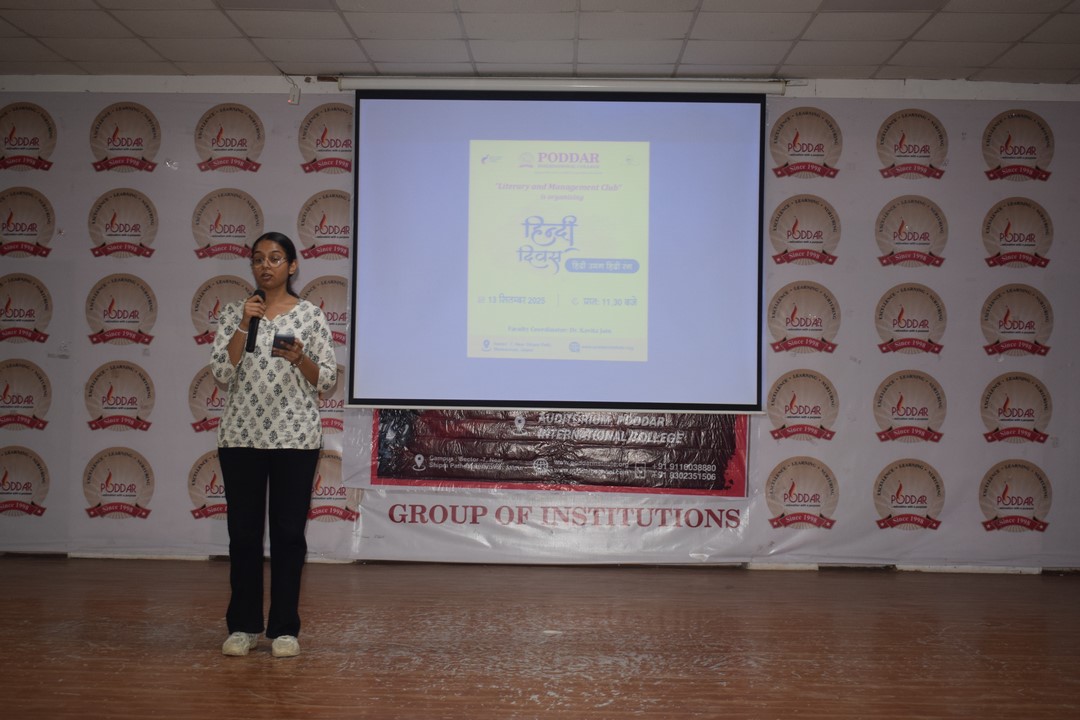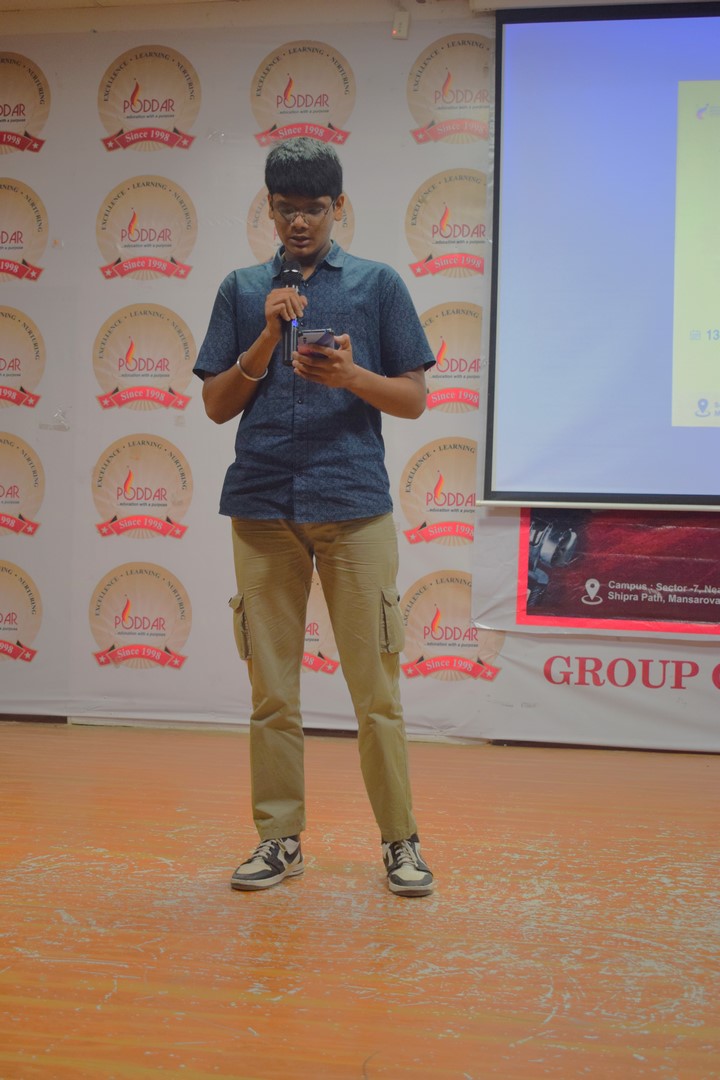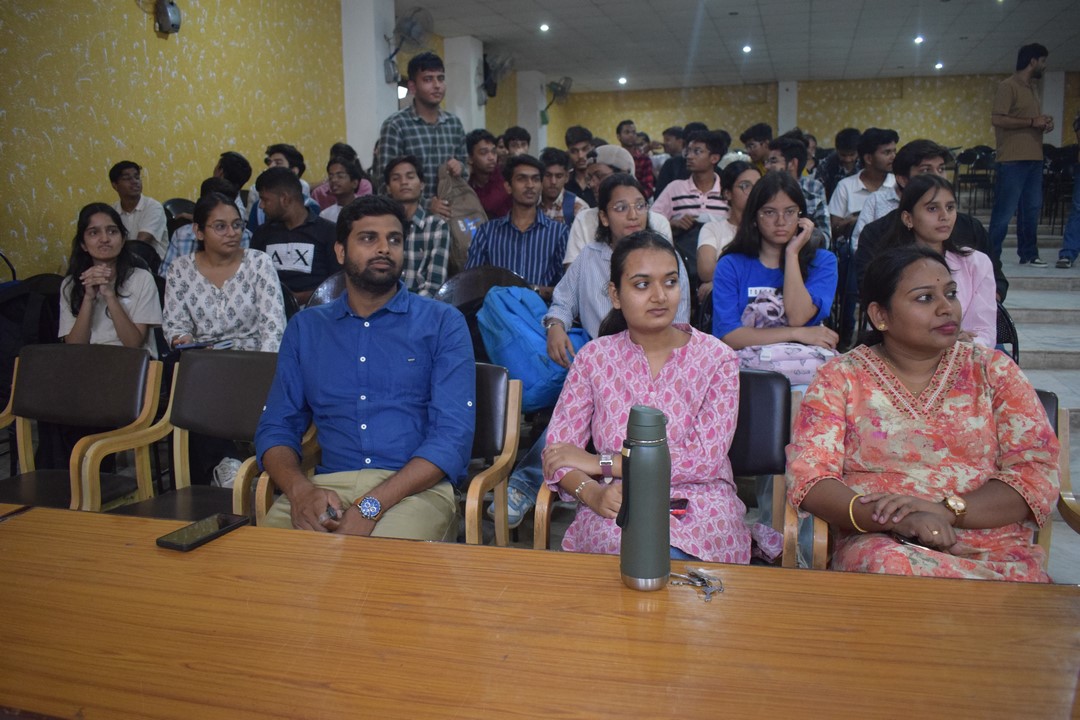Poddar International College celebrated “Hindi Diwas” with great enthusiasm. The event was organized by the “Department of Commerce & Management” in collaboration with the “Literary and Management Club”. The program commenced with a traditional lamp-lighting ceremony by Dr. Meenu Mangal, Vice-Principal, who also delivered an inspiring address on the significance of the Hindi language.
The event was coordinated under the guidance of Dr. Kavita Jain. The highlight of the celebration was the cultural showcase themed “Hindi Umang, Hindi Rang”. Students actively participated in engaging activities such as “Guess Who,” Word Puzzle, Self-Composed Stories, Poetry Recitation, and “Riddle Me If You Can”. Their creativity and enthusiasm brought vibrant energy to the stage.
The program concluded with a vote of thanks by faculties Dr. Reena, Dr. Aarti, Ms. Charushi Jain, and Dr. Yog Rathore, who appreciated the students’ spirited involvement and reinforced the importance of promoting Hindi as a language of culture, unity, and expression.
Learning Outcomes:
1. Students developed a sense of pride and respect for the Hindi language.
2. The event enhanced creative writing, storytelling, and poetic expression skills.
3. Students gained practical exposure in teamwork, stage presentation, and coordination.
4. The literary activities boosted self-confidence and communication abilities.
5. Participation in puzzles, quizzes, and riddles strengthened critical thinking and quick decision-making skills.
This not only celebrated the cultural value of Hindi but also showcased the Department of Commerce & Management at Poddar International College as a hub of holistic learning, where academics meet creativity and cultural enrichment.
1. Cultural Awareness and Language Appreciation:
Students developed a deep understanding of the cultural significance of Hindi as a language of identity, unity, and heritage. They realized its relevance not only in literature but also in professional communication and everyday life, fostering respect for India’s linguistic diversity.
2. Creative Expression and Innovation:
Through activities like self-composed stories, poetry recitation, and riddles, students enhanced their imaginative thinking. They learned how to articulate ideas in innovative ways, nurturing skills in creative writing and storytelling—abilities highly valuable for management professionals in areas such as marketing and branding.
3. Communication and Presentation Skills:
Participation in stage activities improved verbal and non-verbal communication. Students practiced clarity of speech, effective delivery, and audience engagement, thereby boosting confidence in public speaking—an essential competency in business leadership and management roles.
4. Teamwork and Collaboration
Group-based activities such as puzzles and quizzes promoted teamwork. Students experienced the importance of coordination, cooperation, and mutual support, reflecting the collaborative spirit needed in organizational and corporate environments.
5. Critical Thinking and Problem-Solving
Activities like word puzzles and riddles challenged students to think logically and quickly. They developed analytical reasoning, decision-making under pressure, and problem-solving capabilities—skills crucial for commerce and management studies.
6. Leadership and Organizational Experience
Students engaged in event coordination and performance management, which gave them practical exposure to leadership roles. They learned planning, time management, and responsibility-sharing, all of which align with managerial competencies.
7. Confidence Building and Personality Development
By performing on stage, expressing themselves creatively, and receiving appreciation, students gained self-assurance. This contributed to their overall personality development, preparing them for future professional and social endeavors.
8. Integration of Literature with Management Learning
The program highlighted how literary and cultural activities can complement management education. Students recognized that creativity, communication, and cultural understanding are as important as technical knowledge in becoming holistic leaders.
